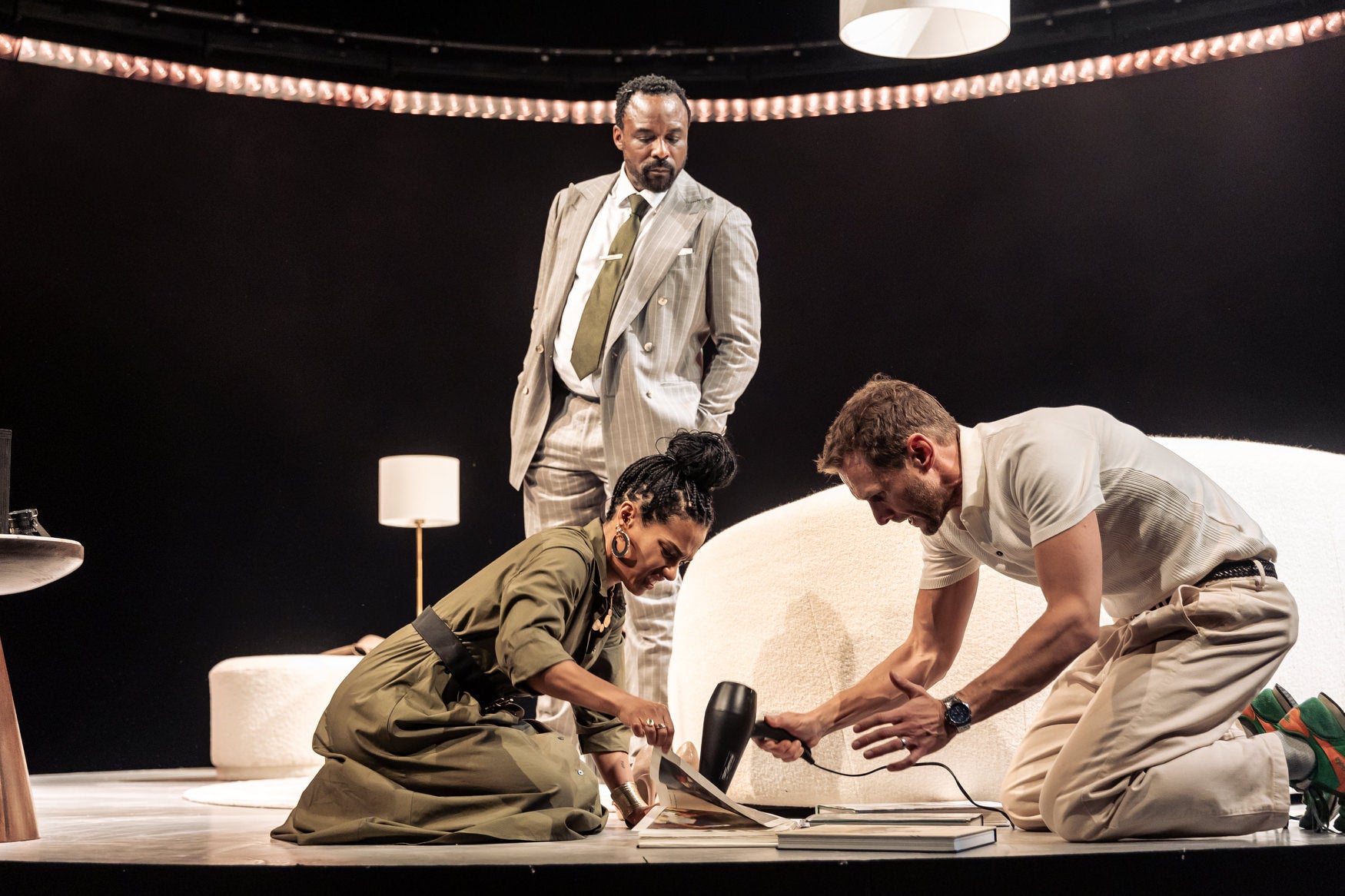God of Carnage review: Freema Agyeman comedy is mannered and unsubtle
Yasmina Reza’s 2008 comedy wavers on the edge of a meaty, satisfying point that never materialises

You don’t have to be some kind of theatrical clairvoyant to work out where French playwright Yasmina Reza’s thoroughly middle-class 2008 comedy God of Carnage is headed. Of course, this designer white furniture isn’t going to stay white. Of course, moral purity will be muddied. Of course, there will be shouting.
In 2009, it won the Olivier Award for Best New Comedy after premiering in the West End with an A-grade cast (Ralph Fiennes, Tamsin Greig, Janet McTeer and Ken Stott) in a translation by Christopher Hampton. You’d expect a revival from west London avant-garde powerhouse Lyric Hammersmith to dismantle its formulaic, drawing-room comedy feel in favour of something a bit more European but director Nicholai La Barrie’s approach plays things pretty straight. The biggest choice here is the acting style: it’s big and oh-so-mannered, something that works in the later slapstick scenes but just feels a bit painful in the early moments. As Veronica, Freema Agyeman (aka Doctor Who companion Martha Jones) delivers a performance that wouldn’t disgrace a Restoration comedy, clutching her chest or collapsing on a couch like she’s literally, rather than metaphorically, dying of social awkwardness.
The underlying cause of all this drama? Her 11-year-old son Bruno got whacked in the mouth with a stick by his classmate Ferdinand. Now historian Veronica and her everybloke husband Michael (Martin Hutson) are putting on an elaborate pantomime of liberal broadmindedness in their book-filled living room. It’s pretty much wasted on Ferdinand’s sharkish parents, Alan (Ariyon Bakare) and Annette (Dinita Gohil) – she’s a superficially sympathetic wealth manager, he’s a corporate lawyer who’s troublingly unrattled by his son’s savagery. Homemade clafoutis is served, and debates on the boundaries of forgiveness and civility ensue.
Only they’re less debates, more punchy one-liners left to float in the souring air (“explain society,” says Alan to Veronica pugnaciously, to no response from this supposed intellectual.) It always feels as though Reza’s text is on the edge of a meaty, satisfying point that never quite materialises. There are fleeting references to the “other” that lies outside the enforced civility of the European middle classes (a tribal mask presides over this otherwise-sanitised living room), but they feel unresolved and uncomfortably simplistic. Alan argues that he can’t get too worried about his kid knocking out a few teeth when child soldiers in Congo are wielding guns, but even though she’s authored multiple books about African history, Veronica doesn’t make the obvious point that those children are forcibly conscripted, rather than choosing violence.

The final scenes of God of Carnage careen into the kind of slapstick, soap-opera chaos that it’s impossible not to get swept up in. But they feel unearned. Its two couples have a veneer of civility that quickly flakes away. Similarly, this play has a highbrow sheen to it that’s not backed up by much actual thinking about savagery and politeness. The coffee table is wrecked, but the thick, glossy, learned books that sit on it remain unopened.
Lyric Hammersmith, until 30 September



Join our commenting forum
Join thought-provoking conversations, follow other Independent readers and see their replies
Comments